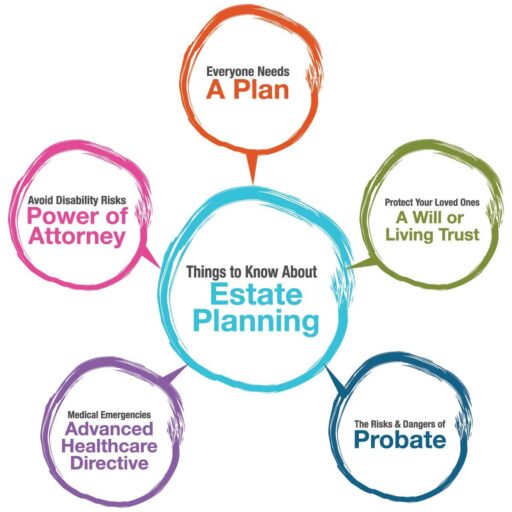Estate planning can often feel like navigating a complex maze – with important decisions to be made, legal jargon to decipher, and considerations for your loved ones’ future. In this article, we will provide you with insightful tips to help guide you through this process and ensure the security of your family’s financial future. From understanding the basics to exploring advanced strategies, we’ve got you covered. So, grab a cup of coffee, settle into a comfy chair, and let’s embark on this journey together.
Understanding the Basics of Estate Planning
When it comes to securing your family’s future, estate planning is a crucial step that should not be overlooked. can help you navigate the process with confidence and ensure that your assets are distributed according to your wishes.
Here are some tips to help you get started:
- Evaluate Your Assets: Take stock of your assets, including property, investments, and personal belongings.
- Consider Your Beneficiaries: Determine who you want to inherit your assets and consider alternate beneficiaries in case your first choice is unable to inherit.

Key Components of a Strong Estate Plan
When it comes to securing your family’s future, having a strong estate plan in place is essential. There are several key components that make up a solid estate plan, ensuring that your assets are protected and distributed according to your wishes.
- Will: This legal document outlines how you want your assets to be distributed after your passing. It also allows you to name guardians for any minor children.
- Trusts: Trusts can be used to protect assets, minimize estate taxes, and avoid probate. They provide flexibility in how and when assets are distributed to beneficiaries.
- Power of Attorney: Designating someone to make financial and legal decisions on your behalf if you become incapacitated is crucial to ensuring your affairs are managed properly.
| Component | Importance |
|---|---|
| Will | Outlines asset distribution and guardianship |
| Trusts | Protects assets and minimizes estate taxes |
| Power of Attorney | Manages financial and legal decisions if incapacitated |
By including these key components in your estate plan, you can have peace of mind knowing that your loved ones will be taken care of and your legacy protected. Consulting with an experienced estate planning attorney can help ensure that your plan is comprehensive and tailored to your specific needs.

Maximizing Your Legacy: Strategies for Effective Estate Planning
Estate planning is a crucial aspect of ensuring that your family’s future is secure and your legacy is maximized. By taking the time to carefully plan and strategize, you can ensure that your assets are distributed according to your wishes and that your loved ones are provided for. Here are some key tips to help you navigate the estate planning process:
- Identify your goals: Before you start any planning, take the time to clearly define what you want to achieve with your estate plan. Whether it’s providing for your children, supporting a favorite charity, or minimizing taxes, knowing your goals will help you make informed decisions.
- Review and update regularly: Life is constantly changing, so it’s important to review and update your estate plan regularly. Major life events such as marriage, divorce, birth of children, or changes in financial circumstances should prompt a review of your plan to ensure it still aligns with your goals.

Estate Planning Pitfalls to Avoid
When it comes to estate planning, there are several common pitfalls that individuals should avoid in order to secure their family’s future. One of the biggest mistakes people make is failing to update their wills and trusts regularly. Life circumstances change, such as births, deaths, marriages, and divorces, which can significantly impact how assets are distributed. By regularly reviewing and updating your estate plan, you can ensure that your wishes are accurately reflected.
Another common pitfall in estate planning is not considering the tax implications of your choices. Failing to account for estate taxes can result in your loved ones receiving less than you intended. It’s important to work with a qualified estate planning attorney or financial advisor to make strategic decisions that minimize tax liabilities. By being proactive and thoughtful in your estate planning approach, you can avoid these pitfalls and create a solid plan for your family’s future.
Closing Remarks
As you embark on the journey of estate planning, remember that securing your family’s future is a gift that will bring peace of mind and stability for generations to come. By following these tips and seeking professional guidance, you can navigate the complexities of estate planning with confidence. Your family’s future is in your hands – make sure it is secure and protected. Happy planning!
